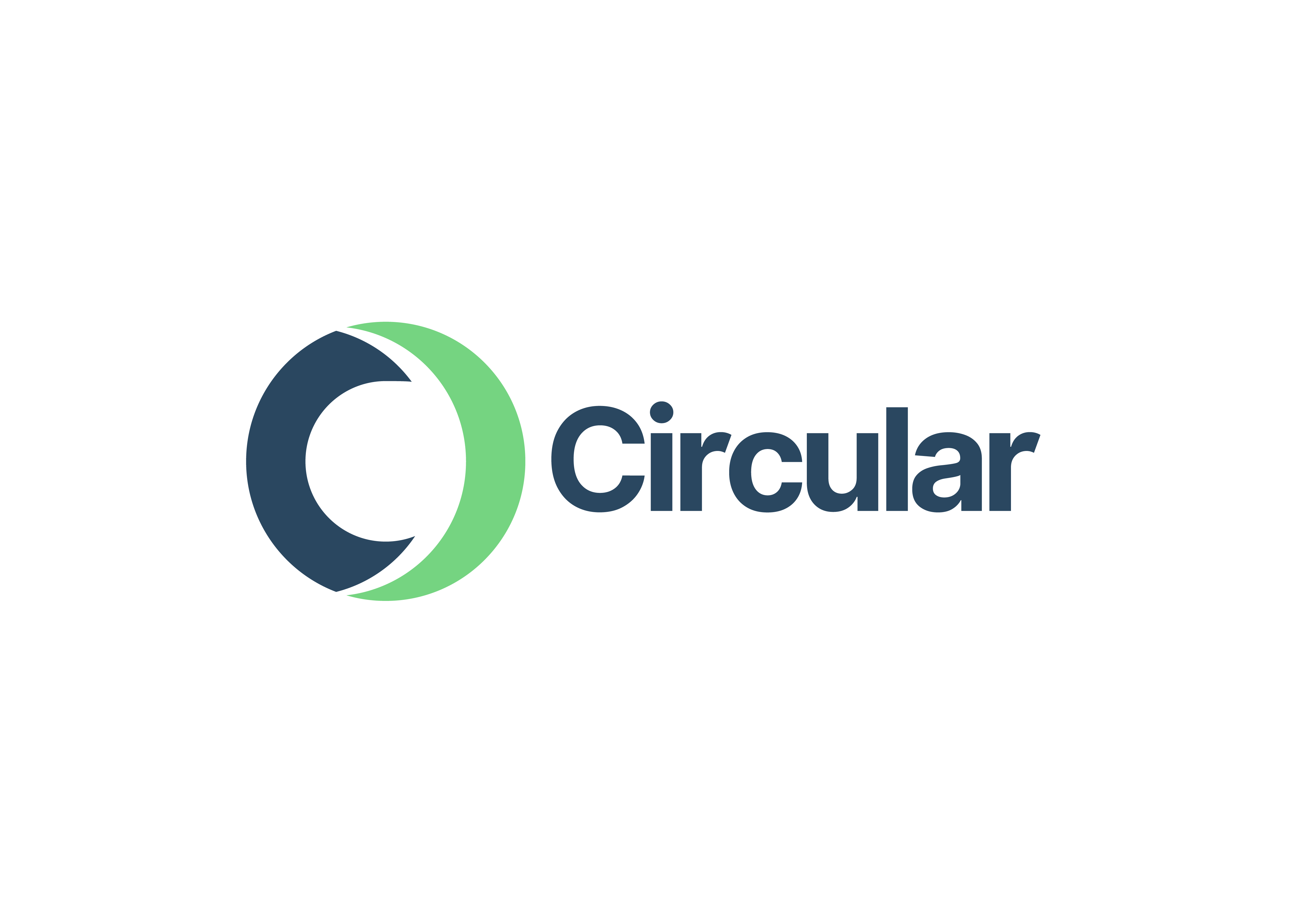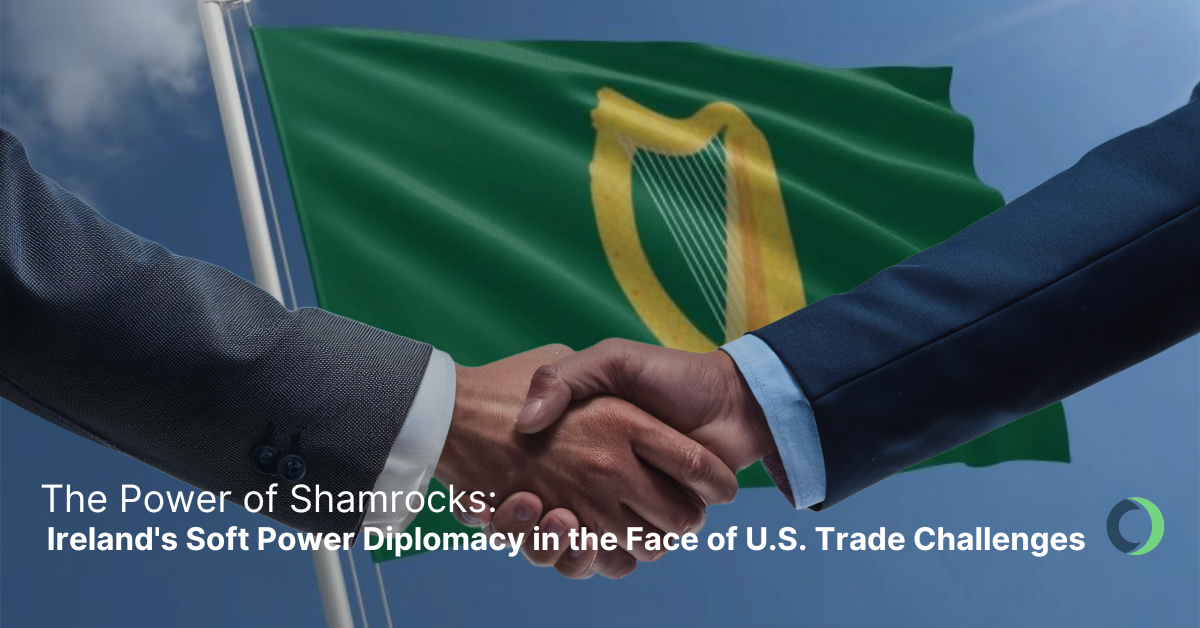Introduction
For decades, the annual tradition of the Irish Taoiseach presenting a bowl of shamrock to the sitting U.S. President has symbolised the enduring relationship between Ireland and the United States. This seemingly symbolic gesture has evolved into a powerful example of Ireland’s skill in soft power diplomacy.
However, with Donald Trump reinforcing his hardline stance on trade deficits, including concerns about the United States’ trade imbalance with Ireland, the question arises: Can Ireland’s mastery of soft power diplomacy mitigate the potential economic consequences of Trump’s protectionist policies?
This article explores Ireland’s diplomatic history, examines how its soft power has elevated its influence globally, and analyses whether this strategy will remain effective in the face of U.S. economic shifts.
The Tradition of Shamrocks: A Soft Power Masterclass
The custom of presenting shamrocks to the U.S. President dates back to 1952, when Irish Ambassador John Hearne first gifted a small bowl of shamrock to President Harry S. Truman. The gesture was formalised in 1956 when Taoiseach John A. Costello met with President Dwight D. Eisenhower. Since then, every Irish Taoiseach has continued this annual St. Patrick’s Day visit, with the symbolism of the shamrock growing in diplomatic importance.
Ireland’s deliberate cultivation of soft power through this symbolic act reflects a wider strategic approach. With limited military or economic clout, Ireland has leveraged its cultural influence, extensive diaspora, and deep-rooted historical connections to strengthen ties with global powers, particularly the United States.
Soft Power in Action: Ireland’s Diplomatic Strength
Joseph Nye’s definition of soft power highlights the ability of nations to influence others through attraction and persuasion rather than coercion. Ireland has become a textbook example of this strategy by leveraging:
· Diaspora Diplomacy: With over 30 million Americans claiming Irish heritage, Ireland has effectively mobilised this connection to build political goodwill.
· Cultural Exports: From literature and music to film and theatre, Irish culture has consistently enhanced the nation’s positive global reputation.
· Educational and Innovation Links: Irish universities maintain strong academic connections with leading U.S. institutions, fostering innovation and collaboration.
· Peace Process Advocacy: Ireland’s role in peacebuilding, particularly regarding the Northern Ireland peace process, has elevated its diplomatic standing.
The Ireland-U.S. Economic Relationship
Despite its small size, Ireland plays a disproportionate role in transatlantic trade. Key facts include:
· The U.S. is Ireland’s Largest Export Market: The U.S. accounted for €52 billion in Irish exports in 2023, particularly in pharmaceuticals, medical devices, and IT services.
· Ireland is a Major U.S. Investment Hub: U.S. firms employ over 180,000 people in Ireland, with the country acting as a gateway for American firms to access the EU.
· Trade Deficit Tensions: In 2023, the U.S. trade deficit with Ireland stood at approximately $50 billion, primarily due to Ireland’s exports of high-value pharmaceuticals and tech services.
Trump’s Protectionist Stance: A Challenge to Irish Interests
During his recent meeting with the Irish Taoiseach, Donald Trump reinforced his concerns about the trade deficit with Ireland. His “America First” economic stance raises several risks for Ireland:
· Pharmaceuticals and Medical Exports: These account for a significant portion of Ireland’s U.S.-bound trade, making the sector highly vulnerable to tariffs.
· Corporate Taxation Pressure: Ireland’s low corporation tax (12.5%) has attracted major U.S. firms like Apple, Google, and Facebook. Trump’s focus on reshoring American profits may pose a long-term threat.
· Financial Services Risks: Ireland’s growing role as a post-Brexit financial hub could be undermined by U.S. economic protectionism.
Soft Power vs. Hard Power: Can Shamrocks Offset Trade Pressure?
Ireland’s diplomatic strength lies in its ability to influence rather than confront. However, Trump’s transactional approach to diplomacy may diminish the effectiveness of soft power. Key considerations include:
· Political Influence in Congress: The Irish-American caucus in Washington D.C. remains one of the most influential lobbying groups, playing a crucial role in shaping U.S. policy.
· Cultural Ties as a Diplomatic Tool: By fostering strong personal relationships, Irish leaders have maintained access to high-level political channels in Washington.
· Economic Adaptability: Ireland’s proven ability to diversify its economic partnerships (e.g., with the EU and Asia) will be key in counterbalancing potential U.S. restrictions.
Future Economic Models: Ireland’s Path Forward
Economists such as David McWilliams and Paul Krugman suggest several strategies for Ireland to manage these emerging economic challenges:
1. Enhanced EU Integration: Strengthening ties within the EU to offset reduced trade with the U.S.
2. Diversification of Export Markets: Expanding Irish trade into emerging markets across Asia and South America.
3. Increased Innovation Investment: Focusing on R&D and tech advancement to solidify Ireland’s role as a high-value exporter.
4. Strengthened Financial Diplomacy: Expanding Ireland’s influence within global financial institutions to reinforce its diplomatic positioning.
Conclusion
Ireland’s tradition of soft power diplomacy has placed it in a favourable position on the global stage. However, Donald Trump’s economic policies may test the limits of this strategy. While Ireland’s soft power remains a formidable diplomatic tool, proactive economic adaptation will be critical to safeguarding the nation’s interests in the face of growing U.S. protectionism.
By embracing diversification, innovation, and deeper EU integration, Ireland can continue to thrive in a rapidly changing global economic landscape. The annual bowl of shamrocks may remain a powerful symbol of Irish influence, but a robust economic strategy will ensure that this symbolic strength translates into tangible diplomatic success.


